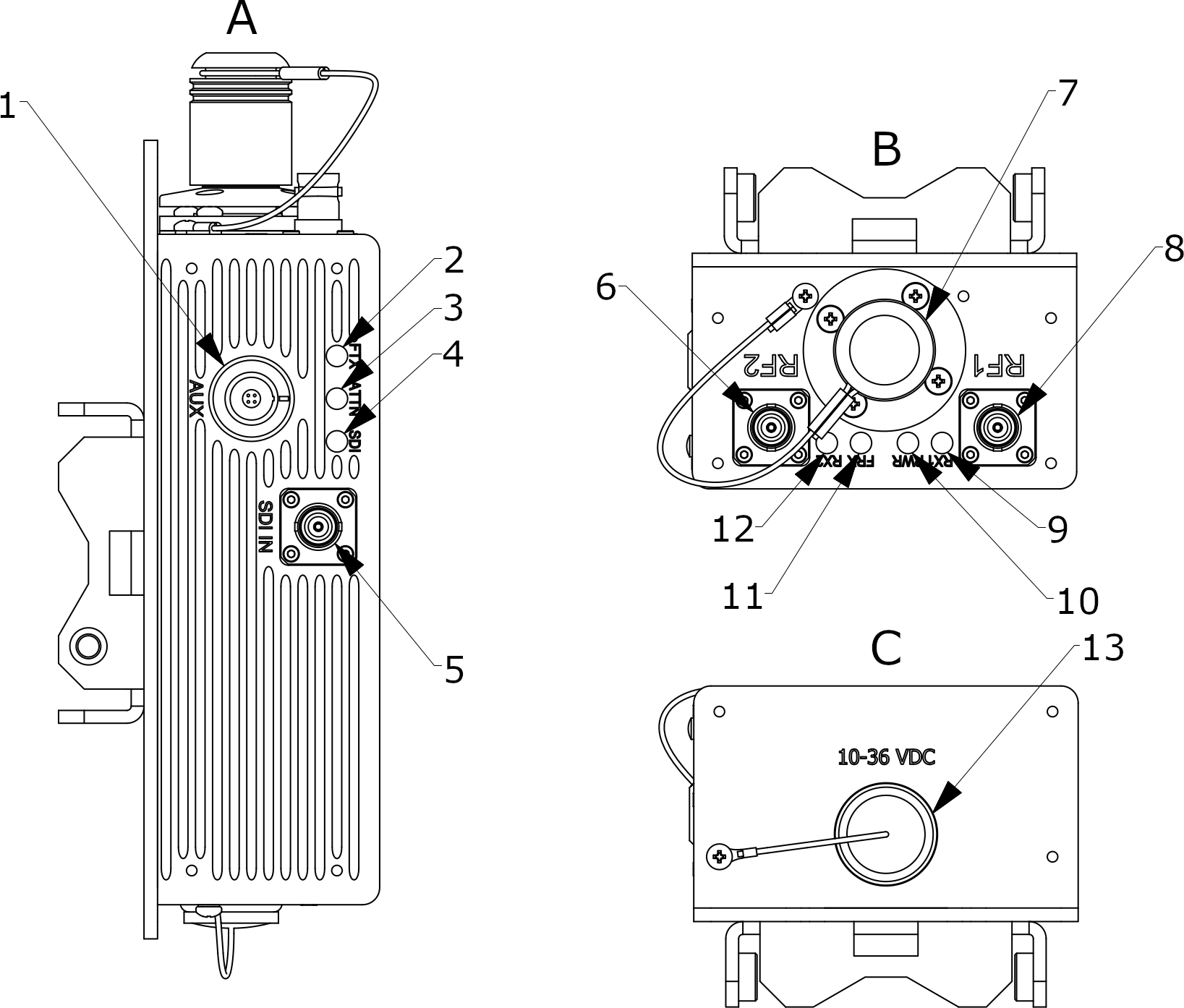Fiber base unit
Refer to the following drawing which shows the locations of the connectors on the fiber base unit. Note for easy identification, the base unit is black to match the receiver.

| Key | Component | Description |
|---|---|---|
| 1 | AUX | Use for programming and firmware updates. |
| 2 | FTX | Indicates the state of the optical transmitter. |
| 3 | ATTN | Indicates whether remote attenuation is activated. |
| 4 | SDI | Indicates whether a valid SDI input has been detected. |
| 5 | SDI IN |
SDI/ASI input. Use to connect an SDI or ASI source to the fiber base unit to send over the fiber link to the fiber remote unit. Note that this interface does not support 3G-SDI. Connector: BNC (F) |
| 6 | RF2 |
Use to connect the fiber base unit to a Real Freedom Receiver or Real Freedom Active UHF Splitter. Connector: BNC (F) |
| 7 | Fiber connector |
Use to connect the fiber cable to the base unit. The other end of the fiber cable connects to the fiber remote unit. Fiber FC/APC – S & D connectors and SMPTE are typically the most used, but other connector types are available. |
| 8 | RF1 |
Use to connect the fiber base unit to a Real Freedom Receiver or Real Freedom Active UHF Splitter. Connector: BNC (F) |
| 9 | RX1 | Indicates whether the base unit has a comms link with the receiver (RF1). |
| 10 | PWR | Indicates whether the base unit is powered and has detected a fiber remote unit. |
| 11 | FRX | Indicates the state of the RF1 and RF2 optical receive levels. |
| 12 | RX2 | Indicates whether the base unit has a comms link with the receiver (RF2). |
| 13 | 10-36 VDC |
DC input to power the unit. Connector: XLR-4 (M) |
